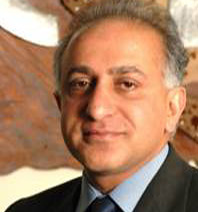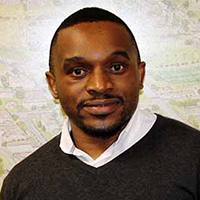


 |
| Contact Info: Rhodes University Trust USA Donovan Neale-May |
Get active in South African Business Link to Experts

Announcement By The Vice-Chancellor, Dr Saleem Badat, On His Decision To Step Down As Vice-Chancellor Of Rhodes University And Depart Rhodes Later This Year
As to the institution that I will join later this year, an announcement in this regard will be made by that institution very shortly. The post of Vice-Chancellor is today one of the most demanding and challenging leadership positions in South Africa and internationally. I have revelled in the challenges and have spent eight interesting, fulfilling and rewarding years at Rhodes. I thank you for entrusting the leadership of Rhodes University to me during the past eight years and I thank all those who have supported me and my efforts to further develop, transform and modernise Rhodes. I have loved being in the midst of outstanding young minds and people, full of talent and potential, from whom I have drawn great inspiration and who fill me with optimism about the future of South Africa. Whenever I have wearied, it has been our students that lifted my spirits and provided me with the energy to undertake my responsibilities and work with a spring in my feet. It has been a very special privilege to be in the midst of outstanding scholars and intellectuals. Rhodes University is inhabited by dedicated teachers and researchers that give it a deserved national and international reputation as indawo yolwazi � a place of knowledge. To possess among the best pass and graduation rates among South African universities is testimony to the combined efforts of Rhodes academics and students and support staff, who labour to create an environment in which the future graduates that our society desperately needs can flourish, and the knowledge that is critical for intellectual, social and economic development can be produced. I have sought to lead Rhodes by example and in a principled, open and transparent manner with deep respect for academic freedom, freedom of expression and the autonomy that is critical for scholars, faculties and academic departments to thrive and advance the frontiers of knowledge. I have counselled against an obsession with global rankings and on the need to remain focussed on the core idea, meaning and purposes of what it means to be a university � not just in abstract, but under the real conditions of a developing and transforming country and changing continent and world. In a nutshell: how do we cultivate knowledgeable, skilled and compassionate graduates and citizens, produce knowledge through different kinds of scholarship and engage with communities within a framework of commitment to the public good and building a society in which all are able to enjoy dignity, afforded opportunities and lead rich, rewarding and productive lives. I have emphasised the need to advance social equity and justice, uphold the dignity of all, embrace, respect and appreciate difference and diversity as powerful fountains of intellectual, scholarly and institutional vitality, confront unacceptable aspects of our institutional culture and practices and make Rhodes genuinely a Home for All. I am excited by the next and new generations of young scholars who combine wonderful intellects and values and have joined Rhodes committed to its development and transformation. I have sought to ensure that financially the University has been managed prudently rather than recklessly or too conservatively, given social imperatives and competing priorities and needs with their attendant difficult social dilemmas. We have increased financial aid significantly and also mobilised much donor support, though the need to support eligible students continues to be outstripped by available resources. We have also addressed key infrastructural backlogs and numerous new academic buildings and student residences have been constructed and are being constructed. With sober deliberation and goodwill among key constituencies, Rhodes will continue to be a sustainable university. I have served Rhodes loyally but have not been shy to be critical of our institutional failures, weaknesses and shortcomings when this has been necessary. The extent to which I have succeeded in developing, transforming and modernising Rhodes University I will leave to you and others to be the critical judges. I have been blessed to have a University Council which has been enabling and highly supportive, and appreciative of the distinction between governance and management � something that unfortunately does not exist at all universities. The Senate is the custodian of the academic integrity and vitality of a university and together with the Faculty Boards at the heart of constituting a university as a collegial institution. I have valued Senate as a deliberative space and as the guardian of the academic project. The Rhodes Board of Governors and countless loyal alumni have provided me wonderful support in our efforts to raise funds and resources locally and internationally for financial aid to deserving students and large infrastructure development projects. The top management of the University have been committed, outstanding and superb colleagues and it has been a pleasure to lead Rhodes with their backing and wonderful support. The Deans, despite not directly reporting to me, as it should be in a system of Faculty Board-elected Deans, have shared in and contributed to the leadership of the University. I am grateful to them for the counsel, advice and support they have provided over the years. Rhodes is fortunate to have hardworking and dedicated senior managers that ensure that by and large the University is effectively and efficiently managed. The Rhodes that I will leave is in very good shape. The process to formulate an Institutional Development Plan as an institutional compass for the future, which is currently underway, will table and seek to address some of the key challenges that face Rhodes. If these challenges are wisely and courageously addressed, Rhodes has a great future and will continue to be one of Africa�s outstanding universities. There should be no anxieties about my departure. Effective transition arrangements will be put in place, and I am confident that all relevant Rhodes constituencies will work cooperatively to ensure that a new Vice-Chancellor that befits Rhodes takes office as soon as possible. There are no specific reasons that compel me to leave Rhodes. I have enjoyed the intellectual and institutional challenges of the past years and hope that I leave the University a better place. I am thankful that I have been able to continue to undertake research and write and publish. I have also welcomed the opportunities to contribute in various ways to building the national higher education sector. The Eastern Cape, with its major developmental problems, has grown on me. This is the right time to move on. The demands on me have been great. The 80 hours plus per week that I have worked these past eight years have taken a toll on my family and I wish to devote more time to my partner and sons. I also look forward to time to write a personal yet hopefully dispassionate and critical account of my eight years at Rhodes, including the travails of being the first black vice-chancellor in 102 years. I am grateful to the various local and international institutions, universities and individuals that during the past year have approached me to join them. I have now committed myself to an institution that has offered me an exciting opportunity to use my knowledge, expertise and experience to continue to contribute to the development and transformation of South African universities. With gratitude for entrusting me with the privilege of leading Rhodes University between 2006 and 2014. Dr Saleem Badat 
|
|
 I wish to announce that I have advised the Chairperson of the Rhodes University Council, Judge Jos Jones, and our Chancellor, Justice Lex Mpati, of my decision to step down as Vice-Chancellor and depart Rhodes later this year. The precise date of my departure will be announced in due course, following discussion with the University Council.
I wish to announce that I have advised the Chairperson of the Rhodes University Council, Judge Jos Jones, and our Chancellor, Justice Lex Mpati, of my decision to step down as Vice-Chancellor and depart Rhodes later this year. The precise date of my departure will be announced in due course, following discussion with the University Council.
